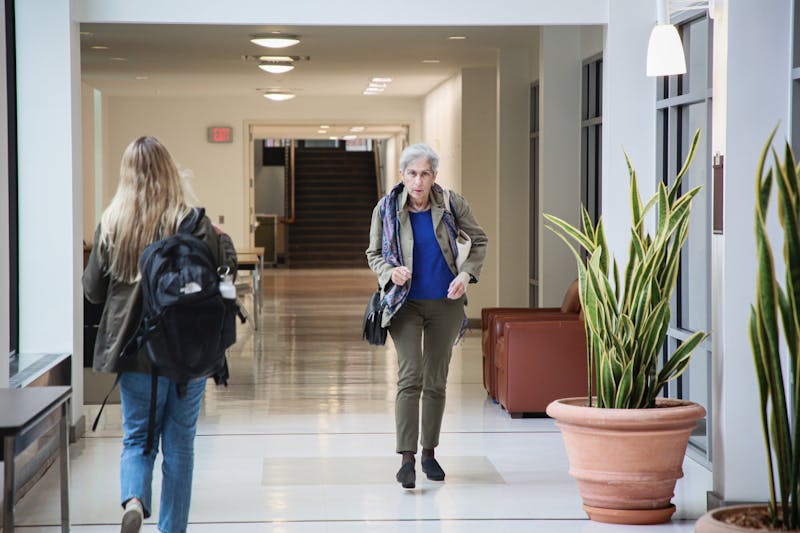Implementation of the new security contract is now behind schedule, because residential life officials aren't in the loop. A breakdown in communication is frustrating the implementation of the University's new safety technology system -- leading key administrators to question the feasibility of the project. On October 9, Penn signed a contract with Sensormatic Electronics Corporation for a $3 million-plus cutting-edge integrated security system intended to deal "thoroughly and successfully with the crime problem," Executive Vice President John Fry said at the time. Since the signing of the contract, Sensormatic officials have not done any work on campus. Public Safety Security Director Chris Algard said he originally envisioned the implementation of the security system for this fall, but has since pushed the start time back to next semester. The contracts were first slated to be signed in June, but negotiation difficulties postponed the plan's completion. That four-month delay is now affecting the implementation and organization of the security system. In October, Fry emphasized that the finalization of the contract marked the University's shift from a short-term to long-term focus in handling crime. Algard said the plan will "fall in place" beginning with the installation of a command and control center in early February. And he hopes to begin pilots of the most advanced phase of the system this spring -- personal and electronic verification in all dorms. But Associate Vice Provost for University Life Larry Moneta said no one involved with the Department of Housing and Residence Life has reviewed the entire security plan. "I know very little about the entire security plan and have absolutely no details," Moneta said. "We have yet to even see a proposal." Before implementation, Moneta's office must review the proposal thoroughly, then present the details to the Residential Advisory Board, the Residential Faculty Council and the entire residential living department. Moneta added that he hasn't heard anything about the pilots that Algard has scheduled to begin within a few months. "Honestly, I have no idea when this security plan will be implemented," Moneta said. "It will wait until everyone involved is in agreement." He also said he doesn't know how the University plans to finance the new system or how the new contract will work. Currently, residential security is contracted to Public Safety -- a relationship that will change with Sensormatic's new technology. The new security will involve readers that scan hand prints and block access to residences for anyone whose print is not in the security computer system, even if the person uses a valid PennCard. Last summer, Moneta traveled with Algard to Atlanta, where Sensormatic is based, to inspect the new system. Moneta said the security system "seems interesting," but the lack of information he and others have is detrimental to the success of the project. "We are all on the same page," Moneta said. "But the communication is lacking." Algard said he is working closely with RAB and RFC to determine the best residences to try out the system. But neither group has met with him so far. "I'm pleased that the Residential Faculty Council will be involved in making decisions about new residential security systems," said RFC Chairperson and English professor Al Filreis. "But we have not heard from Chris Algard about this." RAB Co-Chairperson and College freshman Nikki Rae said her group hasn't discussed the situation with Algard either, but is planning a meeting for later this month. "We don't have enough information about the new security system to support or denounce it," Rae said. "And we also need to find out where the money is going to come from." Throughout the next few weeks, Algard said he will be examining more than 80 sites where building administrators requested additional security. Algard said he wants Sensormatic to begin studying five locations, including the Graduate School of Education and the Nursing Education Building, by December 1.
The Daily Pennsylvanian is an independent, student-run newspaper. Please consider making a donation to support the coverage that shapes the University. Your generosity ensures a future of strong journalism at Penn.
DonatePlease note All comments are eligible for publication in The Daily Pennsylvanian.







